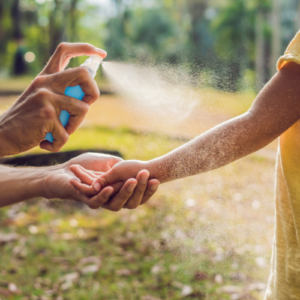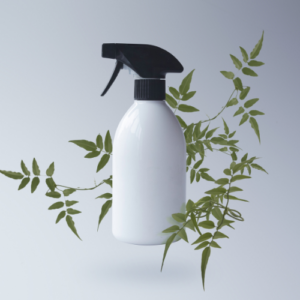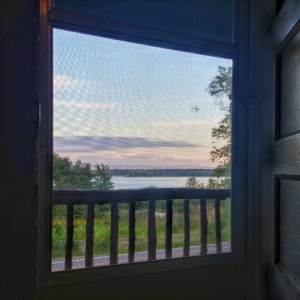
12 Apr DIY Mosquito Repellent Recipes
Mastering Mosquito Control
Mosquitoes in South Florida aren’t just a minor annoyance; they’re a major concern for everyone enjoying the great outdoors. Thanks to the warm, wet climate, they thrive here, making mosquito control a crucial aspect of local life. At Pest Busterzz, we understand that while there are many commercial repellents available, many residents and business owners are turning towards DIY solutions that are not only effective but also safer and more natural.
Tackling Mosquito Dangers in the Tropics
Mosquitoes are more than just pests; they are carriers of various diseases that can pose serious health risks. In South Florida, species like the Aedes aegypti can transmit viruses such as Zika, dengue, and chikungunya. The threat is real and understanding the behavior of these mosquitoes is the first step in controlling their population. These mosquitoes are particularly attracted to standing water where they breed, and they are most active during dusk and dawn.
The best form of control starts with prevention. By reducing their breeding sites and taking personal protective measures, you can significantly lower the risk of mosquito bites. This includes regular yard maintenance to eliminate standing water, and using repellents to protect yourself and your family.
Benefits of DIY Mosquito Repellents
Choosing DIY mosquito repellents offers numerous benefits. Firstly, these solutions are free from the harsh chemicals found in many store-bought repellents, making them safer for use around children and pets. They are also cost-effective, often utilizing ingredients already found at home or easily grown in your garden. Additionally, DIY repellents minimize environmental impact, aligning with a greener lifestyle that many of us strive for.
Creating your own repellents also allows for customization. Depending on your preference for scents or the specific mosquito species in your area, you can tailor your repellents to be as effective as possible. This personal touch not only enhances effectiveness but also increases the likelihood of regular use, a critical factor in ongoing mosquito control.
Crafting Safer Mosquito Solutions at Home
Essential oils are at the heart of many effective DIY mosquito repellent recipes. Oils such as citronella, eucalyptus, lavender, and peppermint are renowned for their mosquito-repelling properties. For a simple repellent, mix 10 drops of eucalyptus oil and 10 drops of lavender oil with 30 milliliters of a carrier oil like jojoba or almond oil. This blend can be applied directly to the skin or added to water and used as a spray.
Citronella oil, in particular, is a staple in mosquito repellent formulations. To make a citronella room spray, combine 20 drops of citronella oil with 50 milliliters of water and a teaspoon of witch hazel. Not only does this keep mosquitoes away, but it also freshens up your room naturally.
Plant-Based Repellents
Herbs are another key player in the natural repellent market. Plants like basil, garlic, and lemongrass can be used to make effective mosquito repellents. For a quick and easy herbal spray, steep crushed garlic or basil leaves in boiling water, strain the mixture, and add it to a spray bottle. Spritz this around seating areas or doorways to keep mosquitoes at bay.
Growing these herbs in your garden or around your home can also serve as a natural deterrent, making your space less attractive to mosquitoes. Plus, they add a touch of greenery and fragrance to your environment, which is a win-win for both aesthetics and functionality.
Physical Barriers for Effective Mosquito Control
Beyond sprays and topical applications, creating physical barriers can further enhance your mosquito defense. Window screens treated with essential oils can prevent mosquitoes from entering your home. For larger areas, like patios or decks, setting up fans can help too. Mosquitoes are weak flyers, and the air movement makes it difficult for them to land.
Setting up mosquito nets around porches or beds can also be an effective barrier method, especially during peak mosquito hours. When treated with natural oils, these nets provide additional repellent properties.
Consistency in Natural Repellent Use
Consistency is key when it comes to natural repellents. Because they do not contain synthetic preservatives, DIY repellents should be applied more frequently than their commercial counterparts. Reapplication every two to three hours is recommended, especially if you are spending extended periods outdoors.
Combining various methods can lead to the best results. While essential oil sprays might be great for personal use, incorporating planted herbs and physical barriers can provide comprehensive coverage for your home or business.
Conclusion
Tackling mosquito problems in South Florida doesn’t have to involve harsh chemicals. With these DIY repellent recipes, you can protect yourself in a more natural, safe, and personalized way. Whether you’re a homeowner, renter, or business owner, embracing these eco-friendly solutions can make your living space a no-fly zone for mosquitoes.
Remember, effective mosquito control is not just about preventing bites—it’s about enhancing your quality of life and ensuring your environment is safe and enjoyable. If you’re looking for more tailored solutions or need professional assistance, don’t hesitate to contact Pest Busterzz. Together, we can keep those pesky mosquitoes at bay and enjoy all that South Florida has to offer.









No Comments